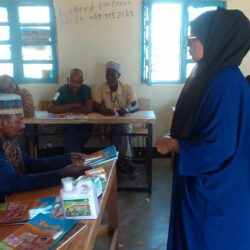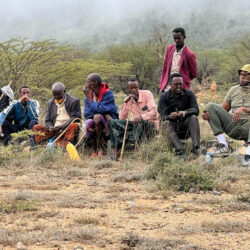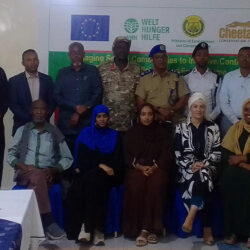CCF Conducted Social Ecology Science Survey in EU Project Intervention Sites of Somaliland
-
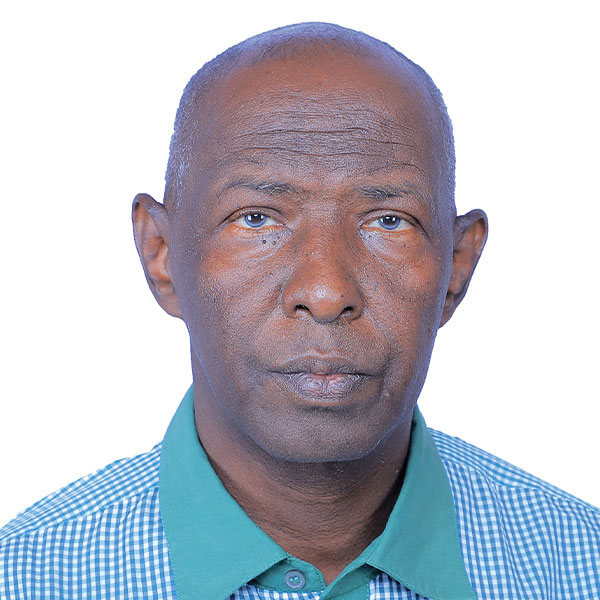
- by Abdirizak Warsame April 23, 2024
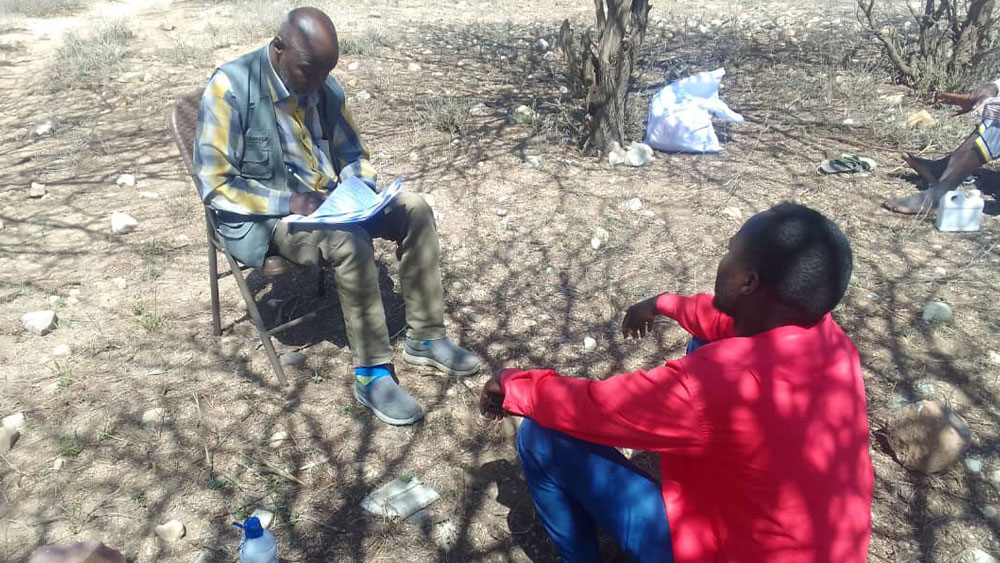
Conservation efforts are essential to ensure the survival and proliferation of wildlife; we need to create a sustainable future for our planet. In Somaliland, the illegal removal of cheetahs from the landscape has been a significant concern, prompting a collaboration between CCF, Deutsche Welthungerhilfe e.V. (WHH), and the European Union.
WHH is a non-profit organization that has been working towards ending hunger and poverty worldwide for over 60 years. CCF has partnered with WHH to develop governance structures in Somaliland to address the illegal removal of cheetahs and promote their protection. Together, we are demonstrating our commitment to the conservation of wildlife and supporting sustainable development in Africa.
The European Union is known for promoting peace, prosperity, and human rights worldwide, and it has awarded a two-year (2022-2024) grant to CCF and WHH for their project in Somaliland. This grant is a significant recognition of the essential work being done by these organizations to protect cheetahs and promote sustainable farming practices in the region.
The project aims to introduce sustainable, ecosystems-based livelihoods (beekeeping); sustainable water supply; awareness-raising regarding the intersection of natural resource management and livelihoods; Future Farmer of Africa (FFA) program for human-wildlife conflict (HWC) prevention and resolution. The project is focused on two regions where the majority of cheetah confiscations take place.

In mid-March 2024, CCF conducted the second Social Science Survey for all EU project-funded intervention sites to compare with the previous study conducted two years earlier. This assessment aimed to evaluate changes and the magnitude of various aspects related to livelihood, income sources, wildlife presence, coexistence, predation losses, mitigation measures of human-wildlife conflicts, and community reactions against predators and other wildlife in terms of damages to agricultural crops in their locality.
The CCF team surveyed five different villages in two regions of Somaliland where the project had been operating over the last two years with communities and other partner organizations, including WHH and the Somaliland Ministry of Environment and Climate Change (MoECC).
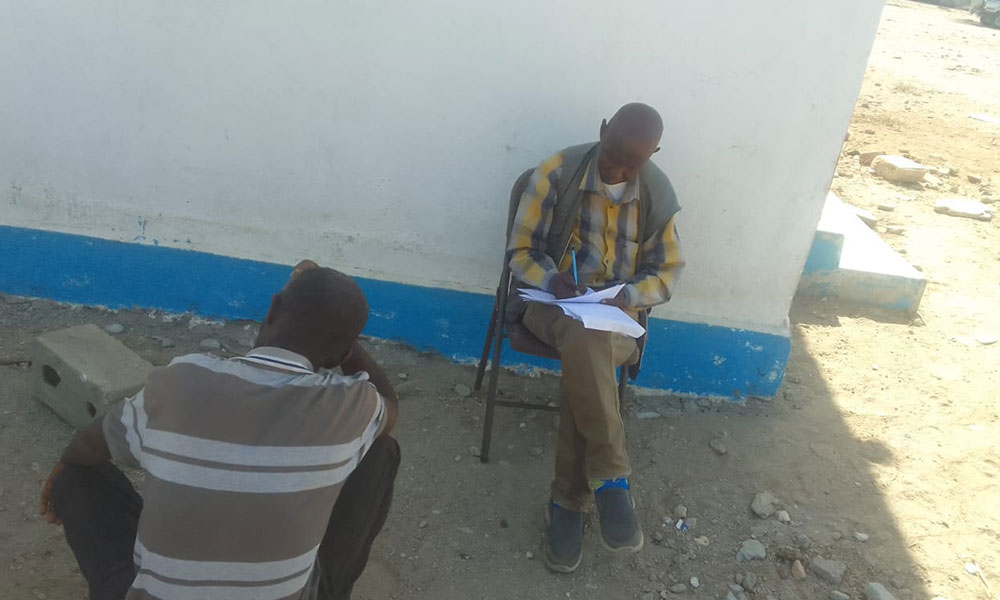
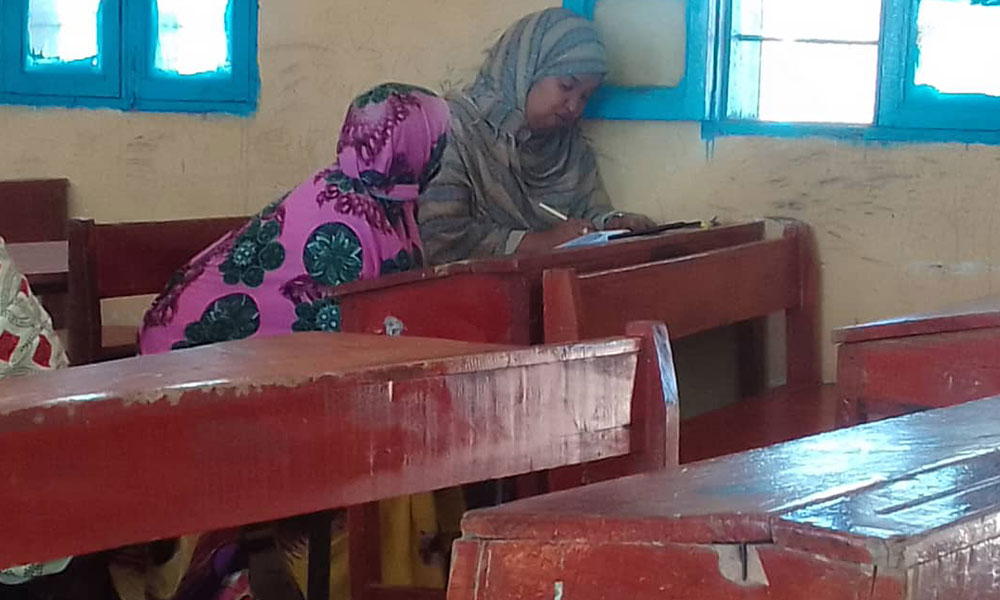
The survey tools included questionnaires for individual herders, farmers, and community elder groups, including village development committees, community leaders, and local authorities of the intervention areas.
The purpose of the Social Survey was to assess and compare the current, recent, and past states of an integrated complex system that includes human and biophysical subsystems in a two-way feedback relationship. It was based on natural rules and theories to explain complex situations and create better-targeted strategies and policies for further interventions.
This specific case study defined tailored research questions that mirror the typical existing challenges, such as losses of biodiversity, weak economic sustainability, and corresponding dilemmas.
The research questions addressed with the communities explored potential barriers to environmental sustainability and helped identify promising avenues for conservation and livelihood improvement
Data entry and processing were organized on a scientific basis, and tools used included the Kobo Toolbox for data entry and analysis. This will facilitate obtaining reliable and clean data that can generate adequate information for different sides that the research is focusing on.
Related Reading
-
January 20, 2024
Safeguarding Biodiversity with an Updated Conservation Bill

